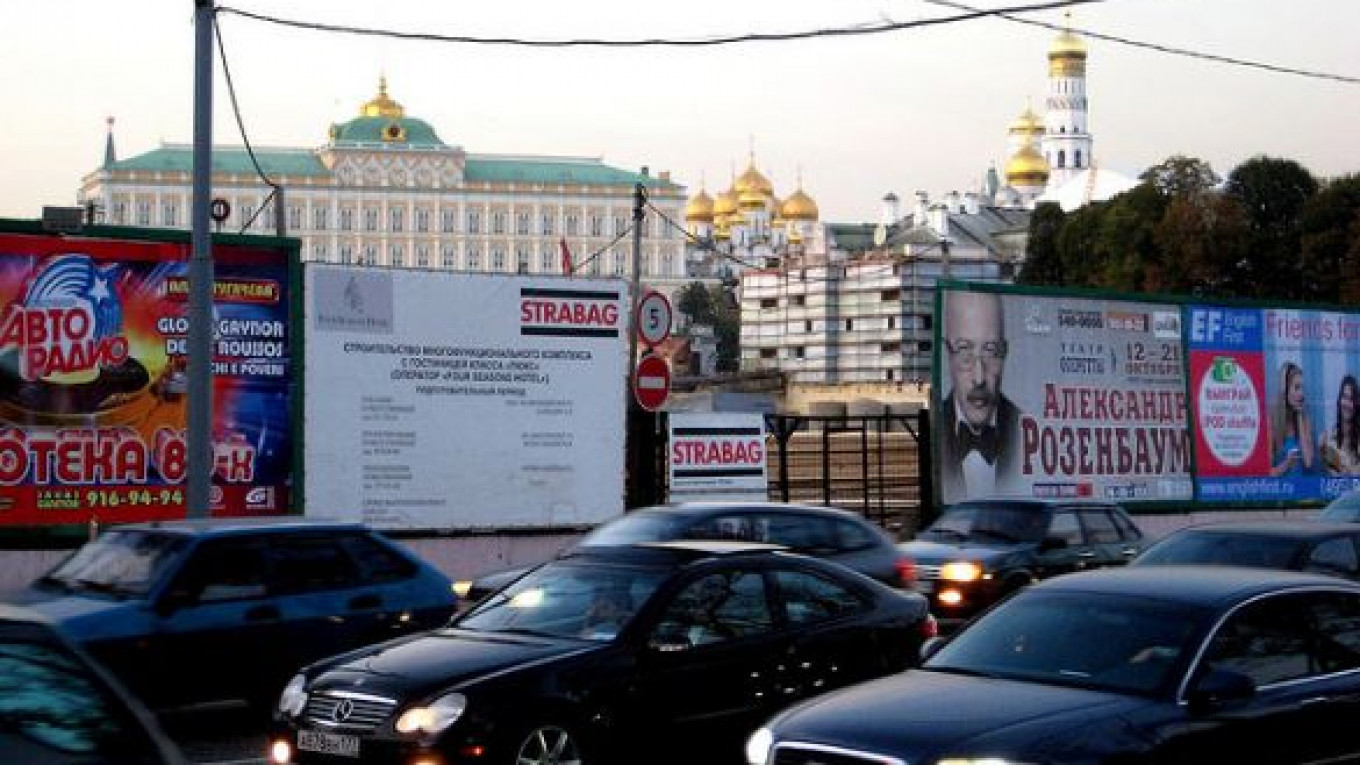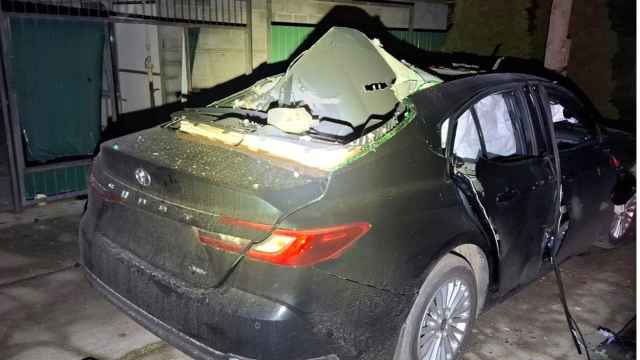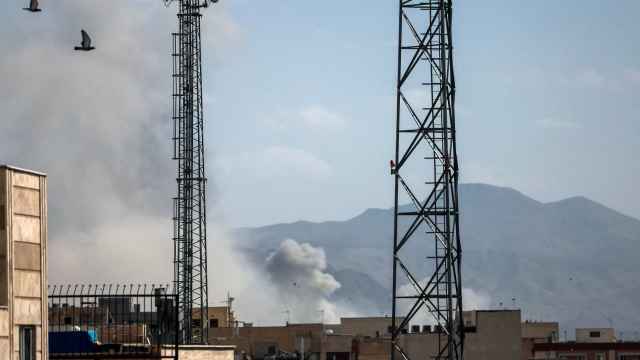Moscow is ranked number one in a congestion index of the world's major cities and building more roads is unlikely to solve the problem, according to a new report.
The average time it takes to get from one point to another during rush hour is increasing, according to research presented by TomTom navigation company revealed at the Open Innovations Forum held last week.
Moscow has the highest percentage of delays versus other cities, with Istanbul, Warsaw and Marseille being the three other most congested towns after Russia's capital, the report said.
"And the situation is becoming even worse," said Ralf-Peter Schafer, Head of Traffic Product Unit at TomTom. "A report we did two weeks ago said there were 136 percent more delays during the day, compared to nighttime traffic flow. Another recent check suggested there were 150 percent delays."
TomTom makes its comparisons based on the average time it would take to cover the same distance in the city at night, when the traffic decreases dramatically.
City authorities have said they are making progress, however, as paid parking introduced in the center over the summer has cut traffic by as much as 25 percent, according to deputy mayor Maksim Liksutov.
Buoyed by these results, the government continues a multipronged approach to battle congestion, which some transportation policy experts say is self-defeating.
To tackle the problem of growing numbers of cars, the Moscow city government plans to build 400 kilometers of new and improved roads by 2020.
Some ordinary streets, like the ones that will become part of the northwestern road project in northern Moscow, are planned to be expanded to multi-lane highways.
The results of this approach will resemble the Third Ring Road, which was constructed by enlarging ordinary streets and linking them using new tunnels and thoroughfares.
After the Third Ring Road fully opened for drivers in 2005, transportation experts spoke out unanimously saying it did not reduce congestion but exacerbated it by attracting more vehicles, which is evident from the daily traffic jams it sees.
The same approach, however, is still in use.
"Before you spend a ruble on infrastructure, you have to first measure the impact the road will have and decide whether it will bring the desired change," Schafer said.
But what the government is doing is incorporating local infrastructure into loops and major roads without having the complete picture, as the real-time online tele-monitoring system for measuring traffic flows is still very poor, he said.
Road infrastructure in Moscow is poorly designed and is being jammed, or gridlocked, which means that spending taxpayers' rubles on expanding existing roads is just a waste of money, international urban planning experts said at the innovation event. The only way to improve the situation is to reduce the demand for cars by offering alternatives, they said.
Mexican Best Practice
Mexico City mayor Miguel Mancera presented his view on how to handle traffic. His metropolis, which sees 12 million passengers ride public transportation every day, is one of the biggest in the world, but it is nowhere near the top of the congested cities list.
One of the solutions applied there was to push people to use mainly public transport. Mexico City has dedicated lanes for buses, bicycles, pedestrians and cars. Individual four-wheel vehicles get fourth priority, while public transport is first.
This is one of the reasons that 70 percent of the population in the Mexican capital uses public transport to get around.
During rush hour, Moscow currently has a similar percentage of public transport usage but this does not help to reduce congestion. The city authorities said earlier this year that the goal was to raise the number to 80 percent.
In order to do so, until 2020 Moscow will build over 150 kilometers of new metro lines adding to the existing 300 kilometers. The metro will get a second ring and about 70 new stations.
"We have worked out a detailed program for improving all means of transport with the foremost accent being on public commuters," said Gamid Bulatov, deputy head of the Moscow's Department for Transport and Road Infrastructure Development.
In addition to new roads and metro lines, there will be 224 kilometers of new commuter rail infrastructure built in Moscow and the Moscow region in the coming years, he said, and the government also plans to buy about 1,500 new trains.
Public Inputs Count
While expanding the public transportation network and making this means of commuting more convenient for passengers may lead to improvement, the way that City Hall communicates with its residents could also do the trick, leading international experts said.
It is important to understand what is happening in the city and be connected to the citizenry, said David Burrows, a government and public sector executive at Microsoft.
One of the key elements of more effective public management is to be transparent on where exactly the taxpayer money is going, he added.
The Moscow government is being autocratic in terms of how it handles public hearings and gets inputs from its citizenry, as are the authorities in other cities, Schafer said.
"Your citizens are your customers, and you have to show them what you did with their tax money," the TomTom executive said. "Awareness is the key to effectiveness, and sometimes people do not even know that something is being done."
Contact the author at [email protected]
A Message from The Moscow Times:
Dear readers,
We are facing unprecedented challenges. Russia's Prosecutor General's Office has designated The Moscow Times as an "undesirable" organization, criminalizing our work and putting our staff at risk of prosecution. This follows our earlier unjust labeling as a "foreign agent."
These actions are direct attempts to silence independent journalism in Russia. The authorities claim our work "discredits the decisions of the Russian leadership." We see things differently: we strive to provide accurate, unbiased reporting on Russia.
We, the journalists of The Moscow Times, refuse to be silenced. But to continue our work, we need your help.
Your support, no matter how small, makes a world of difference. If you can, please support us monthly starting from just $2. It's quick to set up, and every contribution makes a significant impact.
By supporting The Moscow Times, you're defending open, independent journalism in the face of repression. Thank you for standing with us.
Remind me later.






